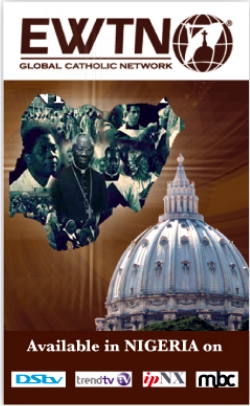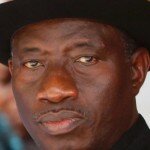Ojukwu and the discourse of disunity
He came from a wealthy stock. He was educated in the best schools. He was a soldier. He was a radical. He was an adept. Some will describe him as unpatriotic, while others see him as a nationalist. Some see him as a villain and others see him as a hero who fought for justice. In life and in death, Ojukwu appeared to have embodied the paradoxes of life and its extremes.
Notwithstanding his rare characteristics represented in a somewhat mystic personality, the name Ojukwu will for a long time remain synonymous with the defunct Biafra. As the ex-warlord of Biafra, Ojukwu was a historic figure upon which the apparent ethnic and tribal disquiet in Nigeria has been incessantly loaded on to. It is therefore not strange and difficult to see the political class working hard to extract some social and political capital from the Ojukwu discourse even in his death. The quest of the political establishment and her actors in this regard appears to suggest and entrench the view that ethnic and tribal sentiments are still rife in the Nigeria forged by the British for the British – a Nigeria that is more of a concatenated geography for the British interests than a nation of people with common interests.
Ethnicity and tribalism have often been blamed for the ills of Nigeria. I tend to agree with this view, though. However, it raises some interesting questions about the meaning of ethnicity and tribalism in contemporary Nigeria. What defines an ethnic group? What defines a tribe? How relevant and necessary are geography and locality in articulating the meaning of ethnic groups and tribes? Can ethnicity and tribalism be loosely articulated to mean a community bound by a common set of practices?
While I accept that geography and locality matter in articulating and defining ethnic groups and tribes in Nigeria in the traditional sense of it, there is a new ethnic group and tribe in Nigeria today not bound by geography and locality. Rather, they are bound by the aggressive pursuit of their self interests under the guise of national interest. For lack of a better description, I call them the nouveau political and economic elites. They are ruthless in their pursuit and unashamedly vocal and oppressive. Obviously, they are not interested in the Nigeria project, as they are bereft of any identifiable national ideologies. For them, Nigeria is a national cake to be shared. They appear not to see beyond their personal interests; and seem not to see how their carelessness could turn on them destructively. When they are sick, they go abroad because there are no worthy hospitals for them in Nigeria. They send their children and wards abroad for studies, because there are no worthy schools for them in Nigeria.
It doesn’t seem to bother them that they are contributing to the growth and development of the other countries they buy from, and invest in, at the expense of Nigeria – our country – and Nigerians. Their usual hobbies and measure of self-worth are expensive assets and gadgets – “my Mercedes is bigger than yours mentality”. They are not up to 1 per cent of Nigerians, yet they hold the rest to ransom and dance on the graves of many. Their common creed is: “Though tribe and tongue may differ, in I-chop-you-chop we stand!” Another name for this ethnic group and tribe is corruption. The group is well embedded in the Nigerian fabric, and have come to epitomise the true meaning and face of multi-culturalism and multi-ethnicism, as the group cuts across the traditional cultures and ethnic groups in Nigeria. This new ethnic group is everywhere in Nigeria, but Abuja appears to aptly capture these gory characteristics in abundance.
Although one can trace the early cracks in Nigeria’s nationhood to the traditional ethnic and tribal tensions that characterised the pre and post independence days, the civil war led by Dim Ojukwu being a classic example of that, I am inclined to think that those ethnic and tribal led tensions have significantly metamorphosed in the course of the modern history of Nigeria. Shortly after the war, in the 1970s, the Igbos (the main ethnic group and tribe represented in the Biafra project), accepted defeat, moved on, and paid the harsh price of marginalisation. They went back to their trades and spread across Nigeria, once again. They have continued to re-integrate themselves into the Nigerian polity. From time to time, however, they become victims of religious riots; but these times, the conflicts and tensions are often defined along religious tribes, which could also unleash their peculiar ethnic and tribal sentiments in their own rights – the sort of sentiments different from the traditional Nigerian ethnic and tribal ones. The Pentecostal churches, for example, represent a different form of multi-ethnicism and multi-culturalism in Nigeria, where brothers and sisters are united not by their State of origin and traditional ethnicity, but by their shared Christian faith. The same also applies to the Muslims and their different sects.
As characteristic of the controversies that trailed Ojukwu in his lifetime, his death has opened a cacophony of discourses, which need to be carefully unpicked. Since his death, the traditional ethnic and tribal sentiments and discourse are being hyped as if they are as necessary and relevant in today’s Nigeria as they were in the 60s. At best, this comes across as a misrepresentation of the prevalent and dominant ethnic and tribal sentiments in today’s Nigeria. I see it as a false discourse to divert attention from the disunity orchestrated by corruption and looting in Nigeria. At worst, it is a dangerous discourse, which has the tendency of re-opening old wounds – especially as it could easily descend to a condescending overture. In my opinion, the political establishment should exercise some care here – despite what might come across as a very good intention. In return, the Nigerian citizenry should not allow themselves to be deceived by these subtle antics from some members of the political class to (consciously or unconsciously) draw attention to the fading ethnic and tribal sentiments, as the main source of disunity in Nigeria. Instead, we should join forces to hold the political class – the new ethnic group of corruption – accountable and responsible.
This nouveau political and economic class that knows no ethnic and tribal boundaries is the embodiment of disunity in Nigeria and should be subdued and marginalised through constructive and informed actions. I see this article as a discursive action to refocus attention from the waning traditional ethnic and tribal affiliations to the corruption that has continue to stand in the way of Nigeria as a great nation. The discourse of national (dis)unity needs to be captured before it is, once again, exploited by private interests to the disadvantage of many well meaning Nigerians. Whilst the death of Ojukwu unleashes further discourses, this piece being one of them, history will now remain his best judge with regards to his intentions for Nigeria; and others will devote time to deconstruct him as he did deconstruct others in his study of history at the University of Oxford back in the 50s.
Adieu Dim Ojukwu. May God now rest your disembodied soul!
_______________________________________
The writer Dr. Kenneth Amaeshi is the Director of Sustainable Business Initiatve, University of Edinburgh Business School, and the founder of “Nigerian Thought Leadership Forum.”Read also Related Posts
Comments
comments


 Politics And Public Service: The Most Lucrative Business Enterprises In Nigeria Today (1)
Politics And Public Service: The Most Lucrative Business Enterprises In Nigeria Today (1)
